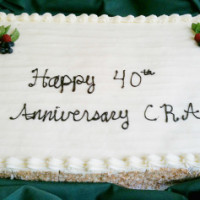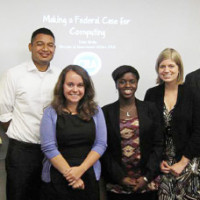CODEBREAKER
The new drama documentary film CODEBREAKER tells the remarkable and tragic story of one of the 20th century’s most important people – Alan Turing. He set in motion the computer age and his World War II codebreaking helped turn the tide of the Second World War. Executive Producer Patrick Sammon screened the film at CRA’s July conference in Snowbird, Utah to great interest and acclaim, and we are sure that others will enjoy it as well.









